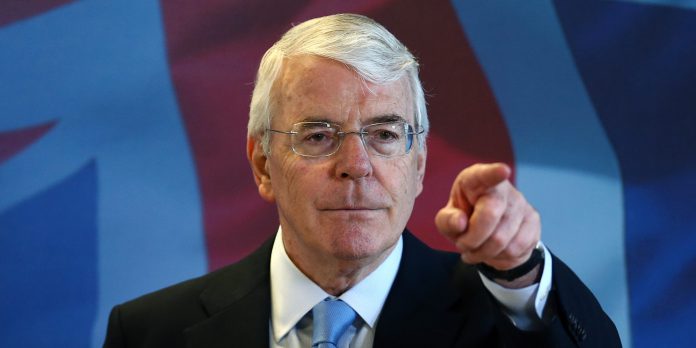Former Prime Minister John Major has declared that there is a “perfectly credible” case for a second EU referendum, and the views of Remain voters should be heard in the debate.
Speaking at a private dinner, John Major stated that a ‘hard’ Brexit was unacceptable and the 48% of people who voted to stay in the European Union should have more of a say on the terms of the deal for breaking away from bloc, the Times reported.
Major accepted the results of the June referendum but hoped Brexit would enable the UK to stay close to the other 27 members and the single market.
“I hear the argument that the 48% of people who voted to stay should have no say in what happens,” he said.“I find that very difficult to accept. The tyranny of the majority has never applied in a democracy and it should not apply in this particular democracy.”
He also criticised the “flavour of bigotry” of the Leave campaign, calling it “shameful,”
Asked about the prospect of a second referendum, he said: “That is a matter for Parliament. You can make a perfectly credible case for it. I don’t know whether that will happen. I think we need to see how things pan out before we decide exactly what needs to be done.”
Major said the slim win for the Leave campaign cannot be interpreted as a mandate to pursue a hard Brexit, where immigration is prioritised over membership of the EU’s single market.
“Some of the 52 % voted because they wanted to leave Europe, or they didn’t like the government, or they didn’t like immigration, or they didn’t like the fact that there was a Sunday in the week, and so it is very difficult to know precisely where the balance of real opinion lies,” he said.
His comments come soon after Tony Blair’s, who also suggests Brexit process could be stopped. Blair told the New Statesman: “It can be stopped if the British people decide that, having seen what it means, the pain gain cost-benefit analysis doesn’t stack.”

